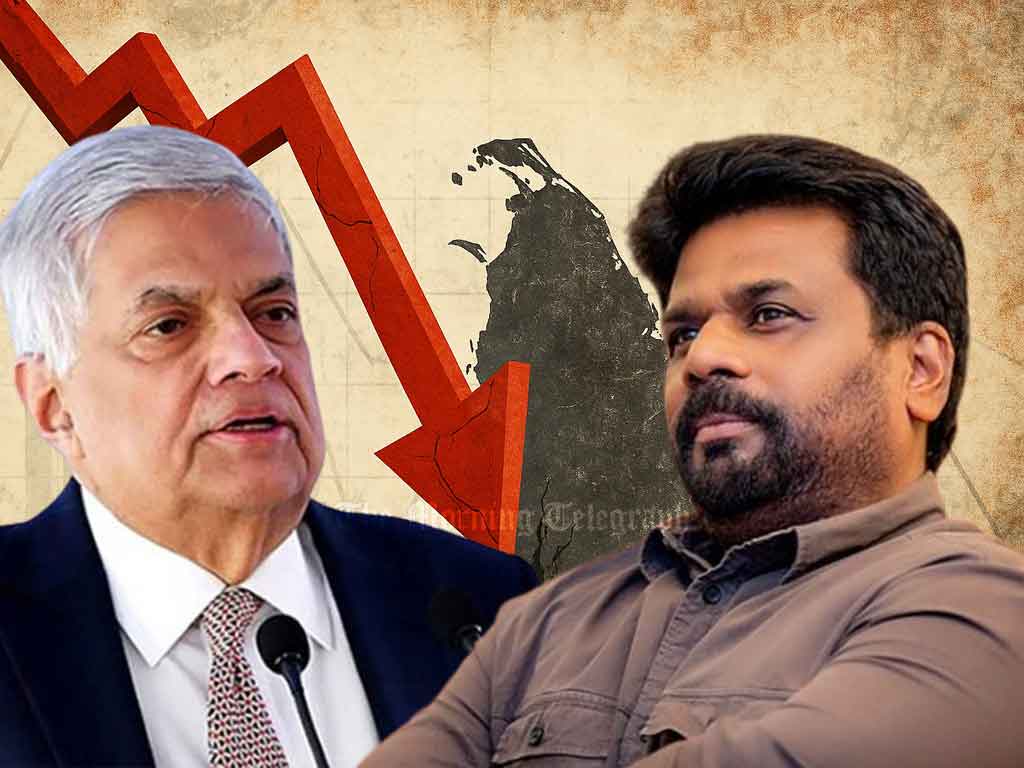
Former President Ranil Wickremesinghe has issued a special statement regarding the new tariffs imposed by the United States.
The full statement is as follows:
A trade war is beginning, with the so-called “reciprocal” tariffs of the U.S. and China imposing tariffs in retaliation against one another. It is expected that globalization and WTO rules will support a resolution and bring it to an end.
However, a situation is now emerging that could lead to an uncertain period in which major economic powers either challenge or cooperate with one another. In this breakdown of the world order, the most affected will be small countries like Sri Lanka. The U.S. is a key market for many such countries that export only one or two products.
Even after negotiations, tariffs are unlikely to return to the levels that existed before April 2. This will hinder Sri Lanka’s exports, resulting in factory closures and significant job losses—potentially as high as 100,000 depending on the industry. Similarly, the widening trade deficit will contribute to a current account deficit. As overall external trade is affected, the government may fall short of its projected revenue from tariffs and excise duties.
There is also a strong possibility of political unrest due to the worsening economic situation—not only in Sri Lanka but in neighboring countries as well. The following steps should be considered when deciding on remedial measures:
1) National Tariff Policy
The National Tariff Policy, which was scheduled to be introduced in January 2025, was approved by the Cabinet in June 2024.
Four simplified tariff lines (0%, 10%, 20%, 30%) were proposed to be implemented from January 1, 2025, aimed at eliminating most para-tariffs. These tariffs were to be based on principles of transparency, consistency, and predictability. The Cabinet approved a single center for fast-track implementation in 2025, focusing on non-tariff barriers. These reforms have not yet been implemented.
2) GSP+ with the European Union
Under the proposed GSP+ scheme with the European Union, Sri Lanka and seven other countries will form a duty-free trade zone.
To qualify for GSP+, Sri Lanka must be a party to the following 27 international agreements:
- International Covenant on Civil and Political Rights
- International Covenant on Economic, Social and Cultural Rights
- International Convention on the Elimination of All Forms of Racial Discrimination
- Convention on the Elimination of All Forms of Discrimination Against Women
- Convention Against Torture and Other Cruel, Inhuman or Degrading Treatment or Punishment
- Convention on the Rights of the Child
- Convention on the Prevention and Punishment of the Crime of Genocide
- Minimum Age Convention
- Worst Forms of Child Labour Convention
- Abolition of Forced Labour Convention
- Forced Labour Convention
- Equal Remuneration Convention
- Discrimination (Employment and Occupation) Convention
- Freedom of Association and Protection of the Right to Organise Convention
- Right to Organise and Collective Bargaining Convention
- International Convention on the Suppression and Punishment of the Crime of Apartheid
- Montreal Protocol on Substances that Deplete the Ozone Layer
- Basel Convention on the Control of Transboundary Movements of Hazardous Wastes and Their Disposal
- Stockholm Convention on Persistent Organic Pollutants
- Convention on International Trade in Endangered Species (CITES)
- Convention on Biological Diversity
- Cartagena Protocol on Biosafety
- Kyoto Protocol to the UN Framework Convention on Climate Change
- UN Single Convention on Narcotic Drugs
- UN Convention on Psychotropic Substances
- UN Convention Against Illicit Traffic in Narcotic Drugs and Psychotropic Substances
- UN Convention Against Corruption
Sri Lanka is already a party to many of these conventions. Therefore, the government should take immediate steps to begin negotiations with the European Union before the May deadline.
3) Conclude ECTA with India
The government should take all necessary steps to conclude the Economic and Technology Cooperation Agreement (ECTA) with India within three months, enabling greater access to the Indian market.
4) Implement the Sri Lanka–Thailand Free Trade Agreement
The Free Trade Agreement with Thailand should be implemented immediately.




